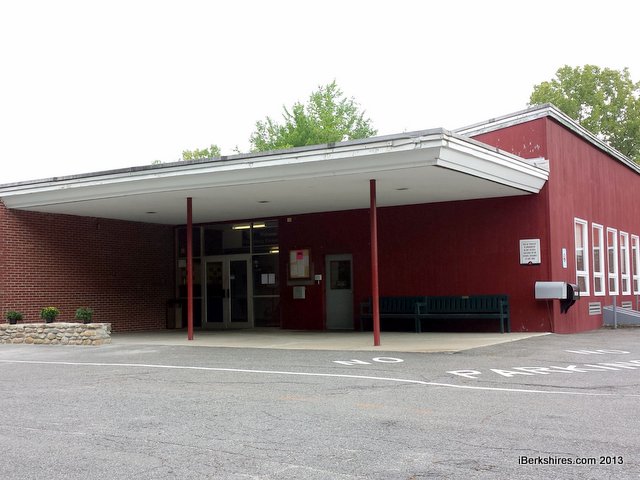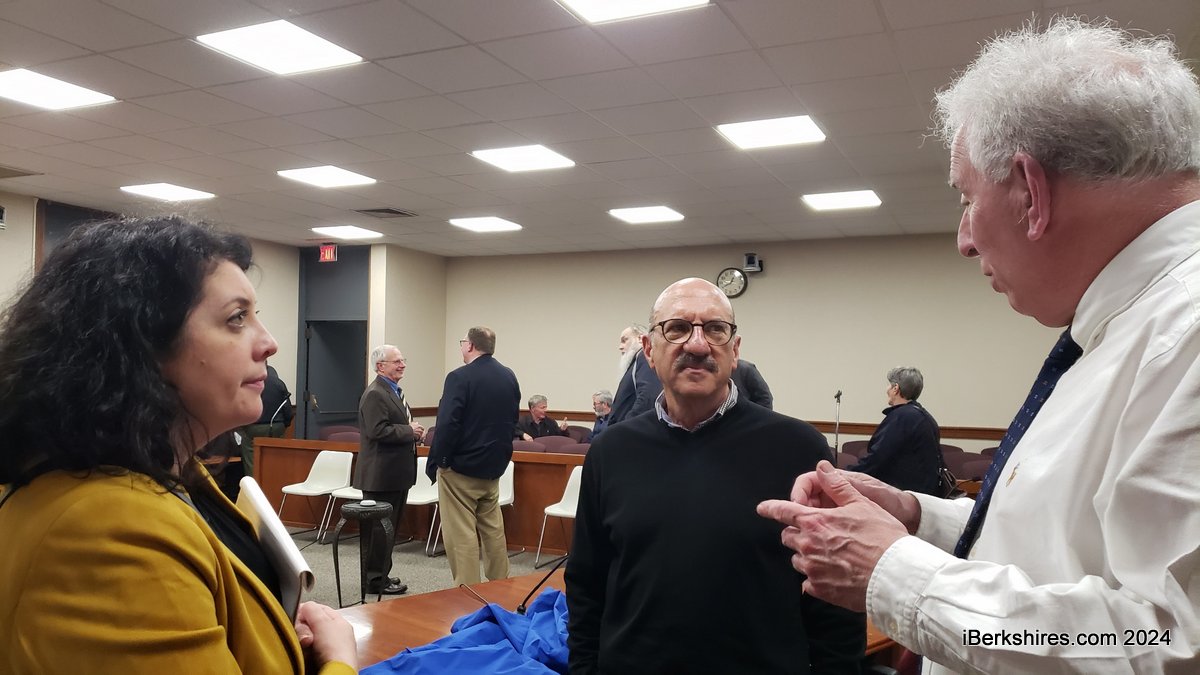Clarksburg School Officials Want Morning Routine Change
 Clarksburg School officials want children in the school earlier. Clarksburg School officials want children in the school earlier. |
CLARKSBURG, Mass. — School officials are pondering ways to get kids off buses and into the building earlier.
The implementation of the state-mandated breakfast program last fall brought to light a long-standing policy on when children are allowed to enter Clarksburg School in the mornings.
Buses were picking up children earlier to get them to the school by 8:15 a.m. so participating pupils could get a "grab and go" breakfast from the cafeteria and have time to eat it.
The problem was that children not getting breakfast had to stay on the buses until 8:30 a.m., causing parental complaints — especially when the temperatures dipped into the frigid zone this winter.
"It seems like you're privileged if you get breakfast because you don't have to sit on the bus," said School Committee Chairman Jeffrey Levanos at a meeting with faculty representatives on Monday.
"I don't understand why this is so complicated," he said, wondering if all the kids could at least go into the cafeteria. "Anything to get them off the bus so they don't have to sit there. It's got to be an icebox on that bus."
Teacher Tina Duval said an accommodation had been worked out with the principal so that children could be brought into the school on particularly cold days but wondered why the policy had now become an issue.
"Why is it OK to leave the kids on the bus for last 30 years but now it's a problem?" she asked the committee.
The three committee members, with Levanos the longest serving at two terms, responded that they weren't aware of the policy until the breakfast issue brought it to the fore.
School policy for decades has been that children would be allowed into the classrooms at 8:30 a.m.; teachers are contracted to be on site at 8:15, and instruction begins at 8:30, although it is not contracted to. Buses were arriving from 8:20 to 8:35 before last fall.
Committee members asked why the pupils couldn't sit in the classrooms when the teachers arrived at 8:15.
"In any weather, I don't understand why they're not allowed into the classroom," said Patricia Prengruber.
Duval responded it was past practice, "so if you change it, our day has to be changed."
But Prengruber responded that was not in the contract: "It's not another duty. You're not teaching."
The 15 or so minutes allows teachers to prepare, meet with the principal, find out about any changes, introduce new staff or substitutes, and consult with co-workers, said Duval.
Bringing students in earlier, especially if they are larger classes, can be chaotic without routine, and can disrupt the children's day as well, said teacher Jennifer Stratton. "I feel like it's changing their school day."
"It's not like we're saying we don't agree, but it's hard to change your routine," said Duval, adding many schools have a similar policy.
Further complicating the issue are buses coming too early and parents dropping off too late. Stratton said it was not unusual to have children getting to class at 9 a.m. — they're being dropped off after 8:30 but are still allowed to get breakfast.
"I think we may need to do some study of when the cars come and how that's going to affect the kids," Superintendent Jonathan Lev said, adding that another look at the tardy policy might be in order. "It is kind of a messy situation. ... We need to investigate this and work on the morning routine."
The group thought it might be possible for the buses to come a few minutes later and have the children eat in the classrooms. Duval pointed out it was difficult for the school to control the bus drivers' schedules or parental cooperation.
Teachers would be asked for input into a policy change, which would not start until next school year, said Lev. The rest of this year, the principal will determine when the children should be allowed in earlier. Duval said there had been no problems with doing that.
"We don't think they should be sitting on the bus either when it's really cold," she said. "We think we should all sit down together and come up with solution, not told what to do."
Tags: breakfast, Clarksburg School, school policy,
















